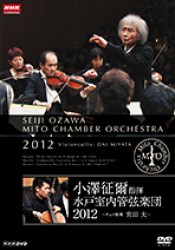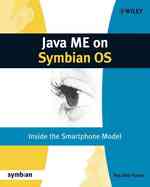Full Description
This book explores how women's relationship with food has been represented in Italian literature, cinema, scientific writings and other forms of cultural expression from the 19th century to the present.
Italian women have often been portrayed cooking and serving meals to others, while denying themselves the pleasure of the table. The collection presents a comprehensive understanding of the symbolic meanings associated with food and of the way these intersect with Italian women's socio-cultural history and the feminist movement.
From case studies on Sophia Loren and Elena Ferrante, to analyses of cookbooks by Italian chefs, each chapter examines the unique contribution Italian culture has made to perceiving and portraying women in a specific relation to food, addressing issues of gender, identity and politics of the body.
Contents
Introduction
Part I: Gender and Social Norms in Food Writings
Chapter 1: She is not selfish enough to analyze and favor these sensual pleasures: The Role of Women in Nineteenth Century Italian Taste (Daniele De Feo, Princeton University)
Chapter 2: Marcella cucina: Marcella Hazan and the Authority of the Italian Cookbook (Danielle Callegari, University of California, Berkeley College)
Chapter 3: Domestic Labour, Everyday Pleasure and Perspective in Simonetta Agnello Hornby's Culinary Memoirs Un filo d'olio and Il pranzo di Mose (Georgia Wall, University of Warwick)
Part II: Food, Womanhood and the Italian South
Chapter 4: Food, Adultery, and the Pursuit of the Modern in Matilde Serao's La virtù di Checchina (Luca Cottini, Villanova University)
Chapter 5: Spiritual Sustenance: Naples' Soul Food in the Narrative Language of Matilde Serao and Elena Ferrante (Pia L. Bertucci, University of South Carolina)
Chapter 6: Eros and Thanatos Meet in the Southern Kitchens of Italy: Castaldi, Ferrante and Torregrossa (Giovanna Summerfield, Auburn University)
Chapter 7: The 'Greedy Southern Woman as a National Italian Cliché: A Preliminary Proposal (Teresa Di Somma and Marcello Messina, Universidade Federal Do Acre)
Part III: Food, Gender and Italian Identity
Chapter 8: From Pizzaiola to Phenom: Viewing Sophia Loren Through Food (Niki Kiviat, Columbia University)
Chapter 9: Women's Eccentric and Nomadic Cooking in Fabrizia Ramondino's Althénopis: When Food Tastes Good and Subversive (Rossella Di Rosa, University of Georgia)
Chapter 10: Feeding the Body, Feeding the Language: Nourishment as a Metaphor of Writing in Igiaba Scego's Literary Works (Laura-Marzia Lenci, Boston University)
Part IV: Food, Family and Politics
Chapter 11: Writing Food: Issues of Female Identity and Gender Politics in Dacia Maraini's Novels (Maria Morelli, University of Leicester)
Chapter 12: Around the Table: Gender and Generational Conflict in Clara Sereni's Autobiographical Writing (Maria Grazia Scrimieri, University of Côte d'Azur)
Chapter 13: Beyond Size and Weight: Gianna Schelotto's 'La ragazza che mangiava la luna' (1992) (Francesca Calamita, University of Virginia)
Chapter 14: Happy Hours: Food, Politics and Female Friendship in Silvia Ballestra's Amiche mie (Claudia Bernardi, Victoria University of Wellington)







